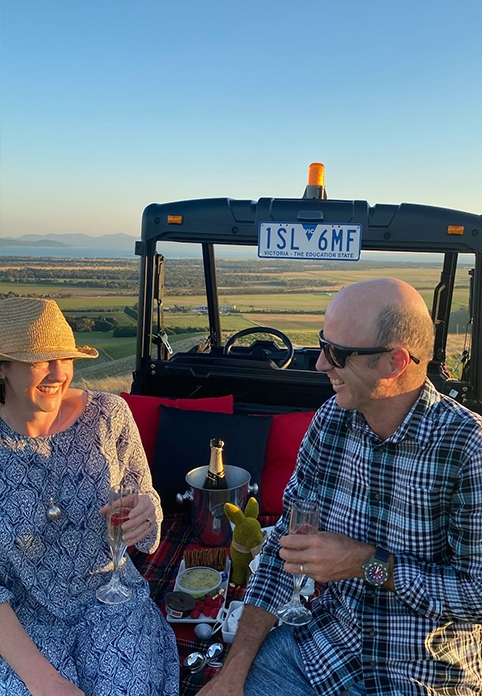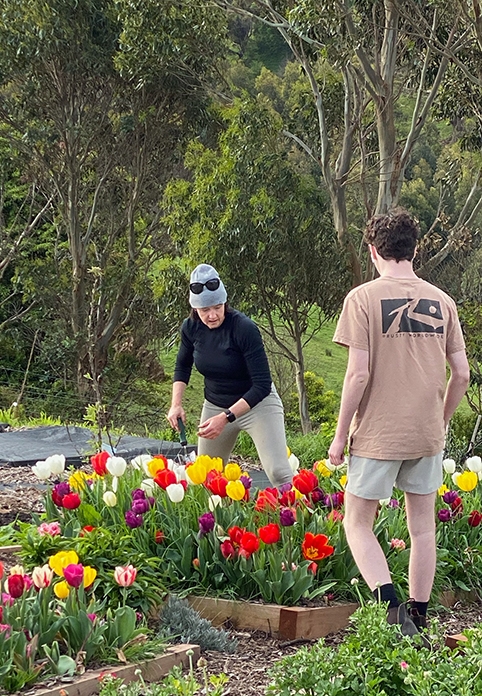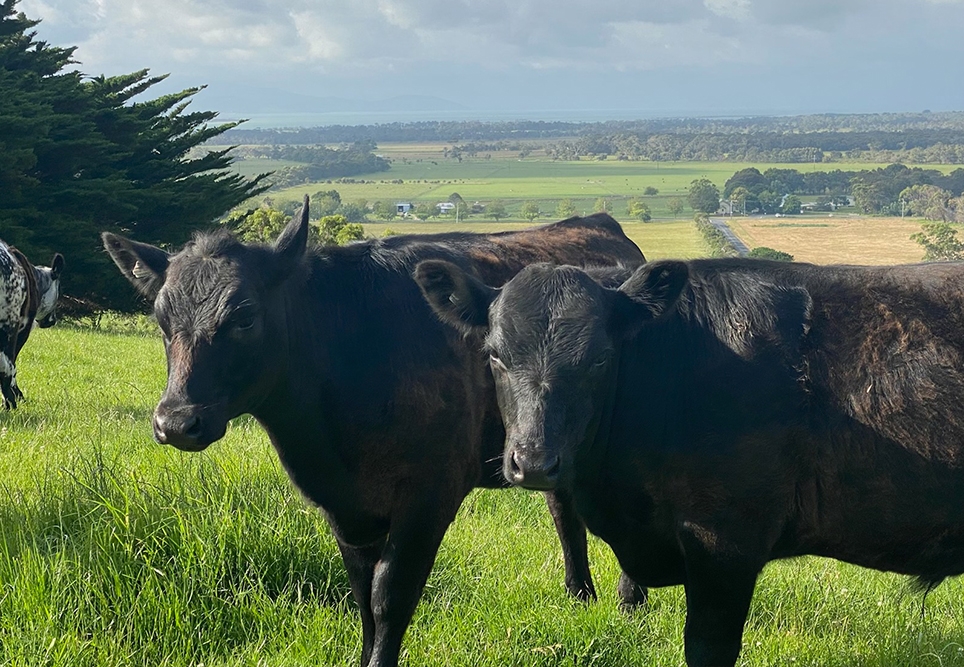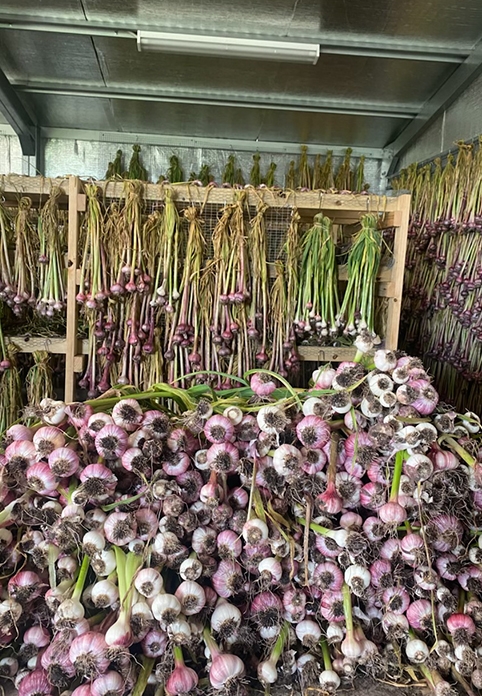
I work in the remotest parts of central and northern Australia and have met many remarkable people in the last 15 years. While working on Milingimbi in the ‘Crocodile Isles’ recently, I met Jason, a remote area nurse who comes close to being top of my list.
He has been an inspiration to me – high- lighting that medicine and nursing can go hand-in-hand with other passions. Every conversation he and I had in the remote community hospital began with Jason’s thoughts about how best to care for the Indigenous patients he knew and cared about.
And every conversation ended with his other passions – black garlic, his wife’s flowers and their growing herd of angus cattle in Welshpool, Victoria.
After decades of remote area nursing in Australia and overseas, Melanie and Jason decided to give farming a go. Now they manage to do both. But it’s not just any farm. They hope to be one of the only producers of black garlic in Australia and have aspirations of selling overseas. After some heartbreaking delays with the COVID pandemic, they’re finally on the road to a dream come true.
The two nurses first met in Alice Springs and worked in central Australia for 16 years. Chasing more adventure, but also wanting to learn from a different culture, and help bridge gaps in health care, they moved to the most northern part of Alaska called Tuktoyaktuk where their two children were born.
The kids went to the local Inuit school and soon spoke fluent Inuvialuktun (a rare Inuit language) as well as French and English.
In 2015 Jason and Melanie moved back to Australia with the dream of establishing a farm while the kids were in boarding school. Melanie did a 12 month course in horticulture and she decided they’d focus on flowers and garlic. Their non-negotiable vision was to be chemical free, self-sustainable and organic.

When staff at the remote clinic in the NT talk about their families back home, Jason talks about how many bulbs of garlic Melanie can plant. Between nine and 12 thousand a day – “and all in a squatting position between the raised beds we built”.
When he’s not driving the 4×4 dented converted troop-carrier/ambulance around communities, he’s driving around their farm on the opposite end of Australia. Just around the coast from Wilsons Prom in Victoria, their property gets a good rainfall.
To begin with Jason built (by hand) 86 raised beds and together they filled them with organic material and soil.

Melanie manages four big worm farms and uses a worm juice/water mix to spray on the produce instead of chemicals. The first year they started with just 800 garlic plants. The crop grew from 800 to about 28,000 in the second year and despite the huge numbers they are planting and harvesting, they do it all themselves.
The plants are grown in special raised beds that Jason built by hand. Each row is 110m long and it takes 40-tipper loads of organic soil to fill one row. When it’s time to make a new row, Jason shovels the tons of soil into the Polaris and Melanie races up the hill to tip it out as best she can each time the tipper bucket is re-filled.
Now Melanie’s hundreds of flowers have taken over the original garlic beds which have been transplanted to another paddock. She’s turned what was a bland space around a fallen down farmhouse into an oasis. The local florists can’t get enough of her daisies, freesias and tulips.
And since she still loves delivering babies at the local hospital, a fair number of her plants go to staff and patients.
Some time ago Melanie began experimenting with garlic salt and handing it around to the neighbours. Eventually they were fighting over it, Jason says, so they began making batches of that too. By default, Melanie and Jason have fallen into stock and have a growing herd of robust Angus cattle. Soon they’ll be incorporating 400 chickens which will be in chicken tractors and follow the cattle from paddock to paddock.


Jason has shared photos with me of the two of them at work and explained how Melanie carefully plaits ten garlic bulbs and plants after harvesting and hangs them in the shed “as big as a small hospital” that Jason designed.
Up until now they have been selling their garlic to a couple of small local shops and neighbours and the products Melanie makes have been snapped up as word spreads.
Just recently they enlisted some help to put a website together and finally, after a long wait due to COVID, they will be transitioning to black garlic – a process. He’s put in an industrial kitchen, bought all the equipment to ferment the bulbs at the right temperature and humidity – and purchased hundreds of jars from an Australian supplier – more expensive than buying from overseas, but “so much more satisfying to know you’re supporting a local business”.
This year will be the first black garlic season and they’re waiting to see if all the training they’ve done and the equipment they’ve built will see it through. Next year, all being well, they’ll apply for a grant to get their small business off the ground and maybe exporting overseas.
But they still plan to keep nursing, Melanie will keep delivering babies and Jason will keep sharing his stories and how many bulbs of garlic she can plant in a day.

